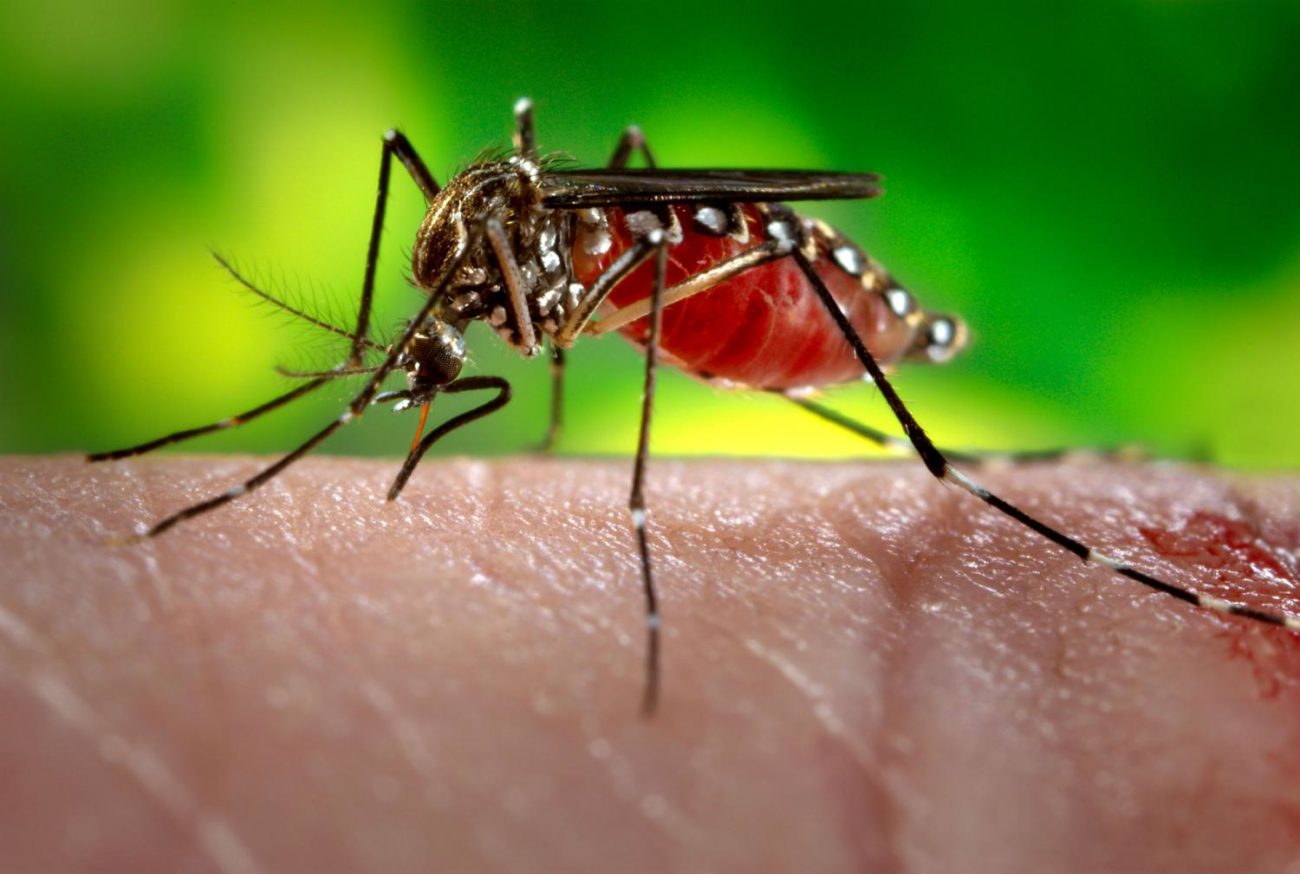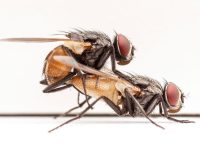
CARLES MARTÍN CANTARINO answers:
The answer may be simple, and pretty sure many people already know it: only female mosquitoes bite because they need blood, not for food, but to produce eggs. In fact, a mosquito, male or female, can live quite well without biting, just licking sugary substances such as the nectar of flowers. But a female will not lay eggs (or, in some species, only a few) if it does not manage to find a vertebrate whose blood it can suck. The reason is that a nectar diet, despite being very energetic, does not provide enough proteins (amino acids) or other substances necessary for the generation of eggs, the oogenesis. And this has been proven experimentally: if a good combination of amino acids is injected into a female mosquito, it will produce eggs without having to ingest blood.
The answer immediately raises many other questions, which recent research is beginning to solve, and they are of great scientific (and humanitarian) interest. Because we are very interested in any issue related to mosquitoes. The first question can be the most obvious, but it is by no means insignificant for a biologist: what is the reason behind this blood dependency when the vast majority of female insects, including other dipteran (such as the housefly) have no problem laying eggs without needing to suck our blood?
Mosquitoes, like many other insects that undergo metamorphosis, have a double life: the larval and the adult stage. Their adult life depends on and can be explained as a result of what they were as a larva. Mosquito larvae, strictly aquatic, colonise areas that are sometimes poor in nutrients: the water that remains in an abandoned pot in a plot of urban land or the rainwater of a puddle, for example. They manage to develop rapidly in these ephemeral environments and transform into an adult mosquito in record time using the amino acids and available nutrients very effectively. But, after the metamorphosis, adults will no longer have supplies for the production of eggs, a process that requires a good amount of those substances, and it will need to get them on its own: for example, sucking blood from a vertebrate that has it in abundance. It is a demonstration of how evolution succeeds in generating organisms capable of adapting to almost any circumstance. To compensate the limitations of larval development, it produced the female mosquito, a machine specialising in the difficult task of making use of the blood.
But sucking blood has its own problems. One of them is that blood as a food is not very balanced: it has a lot of protein, but a low concentration of carbohydrates or lipids, the most efficient fuel to sustain their metabolism. We already know that, in order to fly, mosquitoes need quite a lot of energy: they flutter between 250 and 500 times per second. Therefore it is not surprising that mosquitoes, also females, keep a diet based on sugary substances, perfect for their daily metabolism. There is also the iron problem. Despite being necessary for the mosquito oogenesis, the concentration of iron in blood is too high (as we know, it is contained in haemoglobin) and it is a powerful oxidiser that can be dangerous for the organism. For this reason, recent studies show that mosquitoes have devices specialized in neutralising the Fe ion and eliminate the excess.
But mosquitoes, especially female mosquitoes, have to overcome the fact that vertebrate organisms, logically, have fairly efficient devices to avoid any loss of blood. To address this issue we have to look at another intriguing aspect of mosquito bites: the mere fact, experienced by everyone, that it “hurts”, it “stings”. And why do mosquito bites sting? It is not a stupid question: when you give blood or have a blood test it does not hurt, so why do mosquitoes bite bother us so much, sometimes for a long time, even though a mosquito takes less than a blood drop? It is not a mechanical issue: in fact, the stinger of the female mosquito is so technically perfected that it is more subtle than any medical needle: according to some recent studies, it could even serve as a model for designing a less annoying system of injection than the current one, which would improve the life of those who have to undergo continuous hypodermic injections. Then what is it? Bites sting because female mosquitoes not only pierce the skin and extract blood from the capillaries with its subtle stinger, they also inject saliva before they start sucking. That intrusion of foreign molecules contained in the mosquito saliva causes an itchy reaction in the body and, sometimes, it can even produce serious reactions in allergic people or when one suffers many bites.
This injection of saliva is necessary to counteract the normal defensive reactions of an organism facing a wound, that is to say, the rupture of a cell that breaks blood vessels: firstly, vasoconstriction (a decrease in blood flow) and, in second place, blood clotting, processes that would hinder the mosquito’s blood extraction. And that is the reason why female mosquitoes must inoculate a very refined cocktail – in evolutionary terms – of substances with its saliva, including anticoagulants and vasodilators, which counteract the mechanisms of the organism attacked. Only the saliva of female mosquitoes contains this cocktail, which is being studied in detail because it could provide very relevant pharmaceutical teachings.
It is obvious that mosquitoes do not want the bite to bother the victim, because through pain the victims realize that they are under attack and, therefore, they could end up killing the insect. For this reason, many species of mosquitoes also include anaesthetic substances in the salivary cocktail. In fact, the usual situation is that we realise we are being attacked (that is, we start feeling the itch) long after the mosquito has satisfied its needs. The fact is that this prior injection of refined saliva is what makes mosquito bites hugely importance in the history of humanity. If the mosquito just sucked blood, if it did not inject saliva, it would be very difficult for it to carry dire diseases such as malaria, yellow fever, dengue fever, and so many others (true historical scourges of humanity) it can inoculate unconsciously, when the pathogen has previously infected its salivary glands in a previous bite.
Several recent studies indicate that female mosquitoes parasitised by the malaria agent called Plasmodium show altered behaviour due to the parasite (located in their salivary glands) that leads them to bite more often. Clearly, the mosquito is controlled, although it is not known exactly how, by the parasite interests, like a zombie at the service of the microbe. And even more: it seems to confirm that the composition of the female mosquito saliva, that complex chemical cocktail, allows Plasmodium to infect the host more easily.
Researchers are finding a whole world behind the bite of a female mosquito, an incredibly interesting world. Diseases transmitted by mosquitoes have caused more deaths than all wars put together. This complex mechanism of the mosquito bite is the source, even today, of the death of more than one million people each year, especially children. It is not trivial at all to dedicate our efforts to understand what lies behind a single female mosquito bite.
Carles Martín. Ecology Titular Professor at Marine Science and Applied Biology department. University of Alicante.





